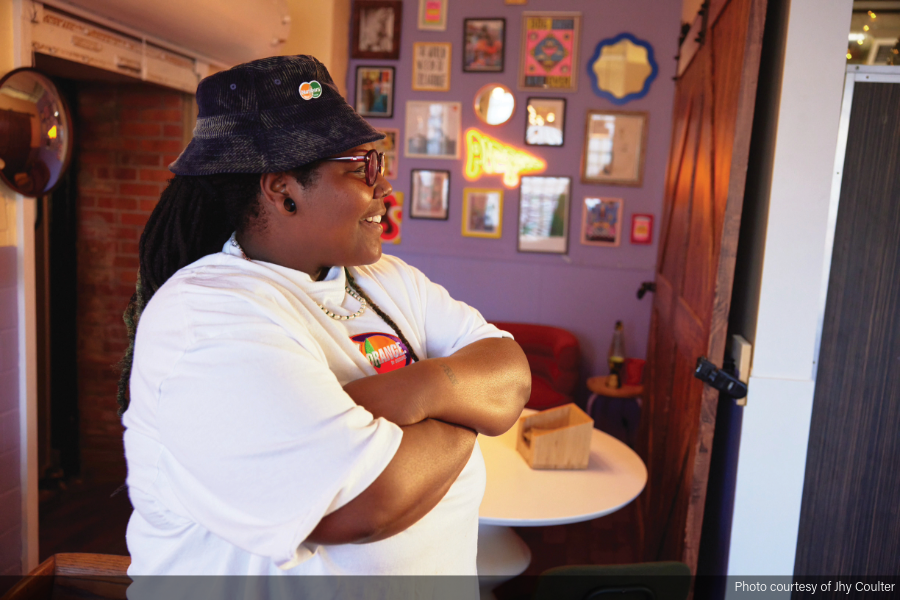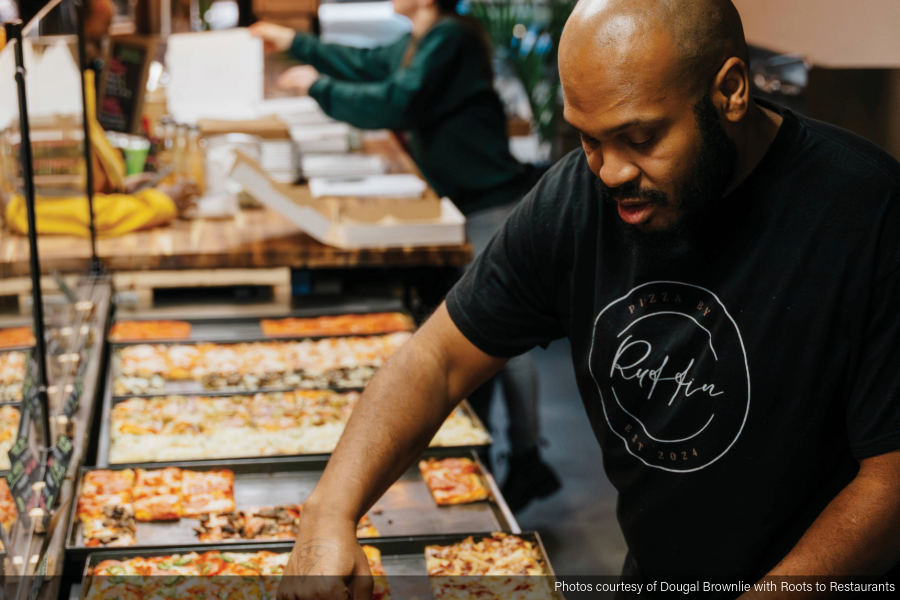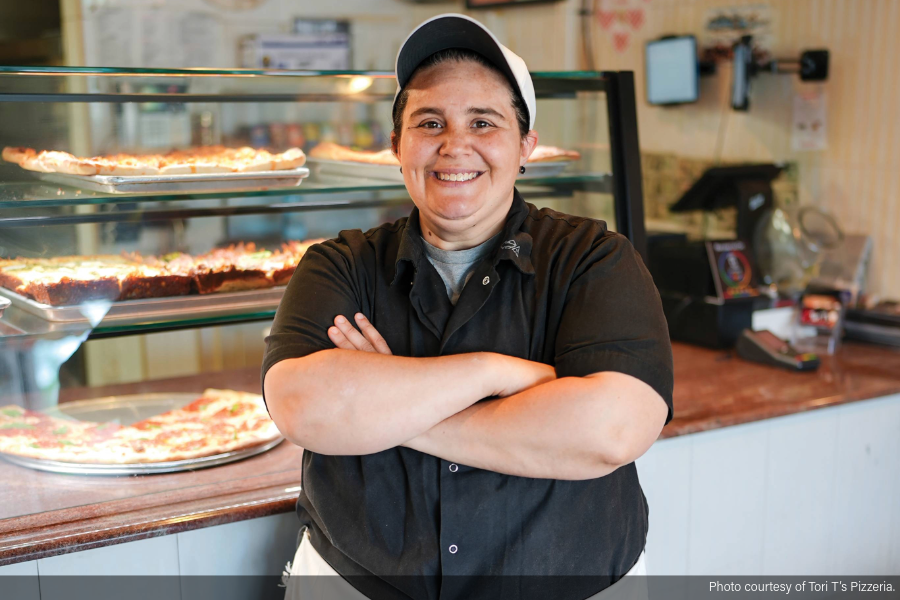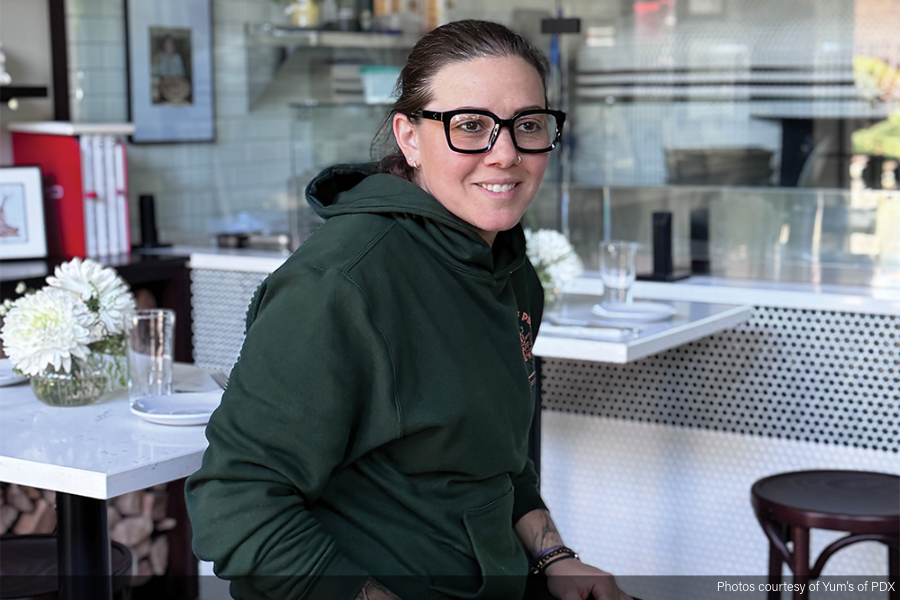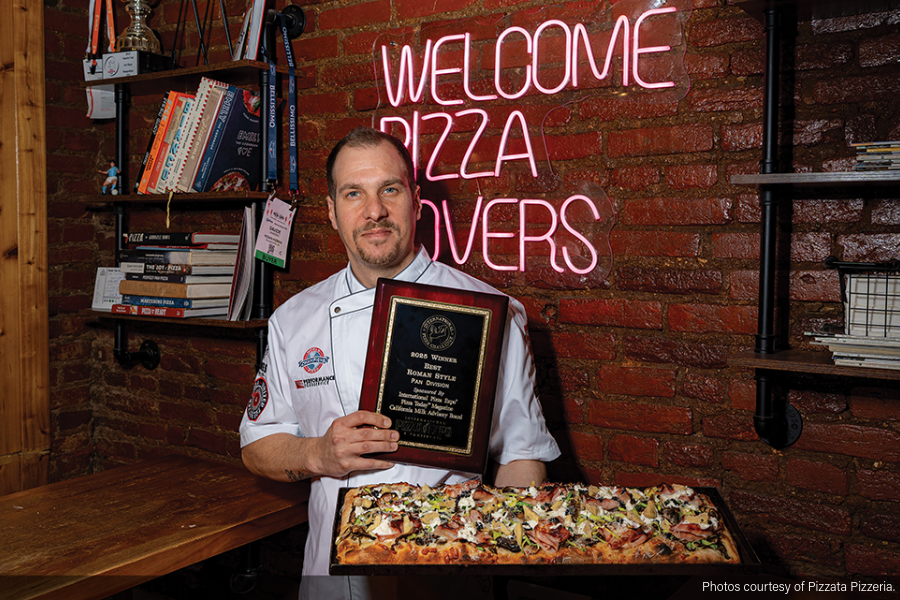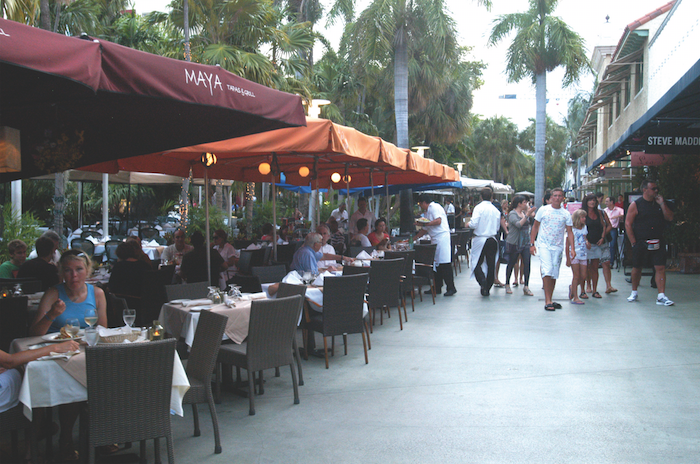
The Lincoln Mall in Miami,FL has five pizzerias within a five-block stretch.
A roundtable talk on philosophy, standing out, and competitive analysis
Competition. It’s a word that may make some operators lose sleep at night. Battling for your share of the market is a critical issue whether you’re in a metropolitan city of millions or in a small town of 1,000.
Every operator approaches competition differently. Six successful pizzeria owners from around the country offer us their perspectives on competition in their unique markets.

PT: What is your philosophy towards competition?
Jerrier: A rising tide lifts all boats. Dallas used to be a pizza wasteland dominated by Pizza Hut. Now we have a lot of “better” pizza choices representing all different styles of pizza — Cane Rosso, Pizzeria Testa, Fireside Pies, Cavalli, Zoli’s and Olivella’s are all kind of a cut above the rest. While we are technically “competitors,” we’re not really located on top of each other so we’re not really cannibalizing each other. People in Dallas won’t drive five minutes to a restaurant — so there are very provincial/neighborhood markets. I’d like to think that we’re all more “frenemies” than cut-throat. The Dallas restaurant community is really supportive of each other. I think we’ve all had enough of “chain” pizzerias.
Bougie: We welcome all competition, as we believe that competition allows customers to have choices. It also encourages us to strive to continue to improve and develop in the food and services that we offer.
Gold: My philosophy is to always sleep with one eye open. You always have to see what is going on, and see what they are doing right, but you also have to ignore the rest, otherwise you’ll drive yourself crazy.
Kapin: I believe competition is a healthy mechanism to raise the bar in quality and variety, but honestly my focus is almost always turned inward toward making my business the best it can be day in and day out.
Page: I love competition and feel it inspires everyone to put your best product forward.
Famulari: We welcome it. There isn’t much you can do about someone deciding to open a pizzeria, so there isn’t much of a point worrying about it. One good thing about competition is it gives us a chance to look at what we are doing as a company and make sure we are doing it to the best of our ability.
PT: Tell us three ways your pizzeria stands out from competition?
Jerrier: 1) Attention to detail — at the end of the day, our pizza is the best because it is a pain in the ass to make it the way we do — 30-hour room temperature proofs, making all of our mozzarella in house, 900-degree wood-fired ovens (no cheating with gas), an actual Neapolitan (executive chef Dino Santonicola, born and raised in Naples) training and overseeing every aspect of our pizza-making process, carefully curated ingredients — we have a garden where we grow a lot of our greens and peppers, sausage made by a chef buddy down the street, etc.
2) Social media — we are shooting for maximum comedy and food porn on all of our social media platforms. Up until December of last year, I personally did all social media for all of our restaurants across all platforms — Facebook, Instagram, Twitter, and of course our now-famous marquee sign at Zoli’s. We are starting to build out a marketing group now — and the team there, like our pizza makers, are much better and funnier than me. We try to use our social media platform as a a way to engage our customers and create interaction — to give them a feel for what we are doing and what we are working on during the day.
3) Community involvement — by this time next year, we will have at least nine restaurants open; but no matter how big we get, we try to become part of each neighborhood we open up in. We do charity nights at all of our restaurants, donate gift cards, fundraisers, sponsor barbecue competitions, and sponsor girls’ lacrosse programs (my daughter plays). Last year we started our 501(c)3 non-profit called Cane Rosso Rescue (canerossorescue.com). We are using our fund raising abilities and reach on social media to help find abandoned dogs new homes and to raise money for under-funded rescue groups.
Bougie: All of our pizza is made from scratch daily, including: house-made dough, sauce, mozzarella. Even our sausage is made and cased in house. We strive to provide best-in-class customer service at all times. We provide a warm, welcoming atmosphere, suitable for business meetings, nice date nights out, as well as a family friendly setting.
Gold: We take a hands-on owner approach, we know what our customers want and we give them good value.
Kapin: We make all our food from scratch and make sure it tastes good. We provide an authentic space that is fun, feels positive and locally rooted. We provide high-paying quality jobs and thus have a committed, engaged and proud staff that provides great customer service and experiences with our shop.
Page: We offer a unique product and fun experience. We have a strong social media presence; and utilize the tools to share our nightly slices and monthly specials. We enjoy participating in charitable causes and donate often to raffles and organizations; as well as hosting fundraising nights.
Famulari: Have a quality product — our No. 1 focus is on the food. We are always searching for the best quality products to offer to our customers.
Participate in local events — locals like events, and in turn, like us for being there. It’s always fun to meet our customers at the events and hear how much they like our pizza.
Advertise — unfortunately it’s part of the business. I wish it could be all word-of-mouth, but that’s not the case.
PT: How often do you conduct a competitive analysis and what factors do you evaluate?
Jerrier: Competitive analysis was always pretty informal in the past. Since we’ve been growing our marketing group, I’ve asked them to focus on market research and competitive analysis. We like to keep up on what everyone is doing…not so much in Dallas as we know and are friendly with a lot of the other pizzerias, but we’ve spent some time doing inspirational trips to other cities to see if Cane Rosso might be a fit or if anyone is doing something cool that we should think about… We look at the food, first and foremost. How does it taste, what kind of oven do they use, how does it look? We look at how the restaurants are laid out. How is the menu set up? How are the prices? We look at all of their online reviews, their social media presence, etc. We just try and get a feel how they fit in to their city.
Bougie: Several times a month we visit a multitude of different restaurants to take a look at up-and-coming trends, quality of end-products, consistency of end-products, ambiance and guest experience/service.
Gold: We do it once a year. We evaluate why people buy from them.
Kapin: When we are updating our menu and pricing, I take a look at my local competitors to make sure we are staying within reason to what others are offering/charging and make sure if we are going outside of common price ranges that our offerings have the value behind them.
Page: We are constantly analyzing competition and take multiple factors into consideration. Food quality and creativity, price, drink selection, ambiance, promotional ideas….the list goes on and on.
Famulari: We try to conduct a competitive analysis at least quarterly. It will usually consist of competitor’s prices, offerings and anything else that might be relevant about an existing or new restaurant location.
MORE on the in-depth competition Q&A
Pizzatoday.com/more/competitiontalk/
Denise Greer is associate editor at Pizza Today.


